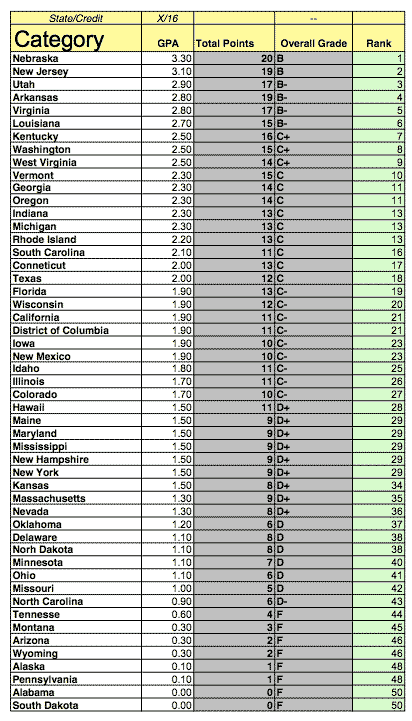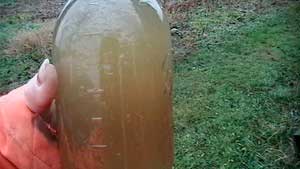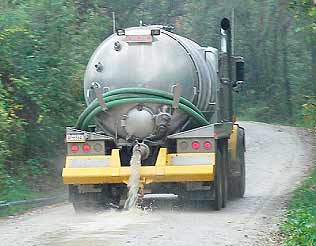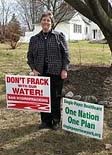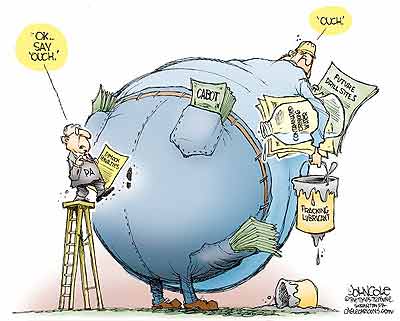Biblio
The Collaborative on Health and the Environment (CHE) is an international partnership committed to strengthening the scientific and public dialogue on the impact of environmental factors on human health...
Underlying all of CHE's activities is a commitment to strong, uncompromised science. CHE Partners share the conviction that under conditions of scientific uncertainty, when evidence of the potential for harm to human health and the environment is scientifically compelling, precautionary measures that emphasize exposure prevention should be undertaken.
After decades of declining US natural-gas production, a new and powerful drilling technique that fractures rock with high-pressure fluid is opening up vast shale-gas deposits in Texas, Colorado and now many parts of the Northeast.
Hydraulic fracturing or "fracking" injects tons of toxic chemicals into the ground in order to break up shale beds rich in natural gas. Researchers, health and environment experts, and community groups have expressed strong concerns about these chemicals contributing significantly to air and water pollution.
The shale gas reserves, however, are seen by a number of companies, states and landowners as an enticing economic opportunity that could reap billions while lowering residential heating bills. The Environmental Protection Agency began public hearings last March to investigate the issue, and a number of citizen protests have recently been held in regions where fracking is already being undertaken or proposed.
This CHE Partner call featured four leading researchers in different fields of expertise to discuss the potential human and environmental health implications of fracking.
Featured speakers included:
- Sandra Steingraber, PhD, author of Living Downstream
- Theo Colborn, PhD, President, The Endocrine Disruption Exchange (TEDX)
- Tony Ingraffea, PhD, PE, Cornell University
- Weston Wilson, Retired EPA Region 8.
See: Poisoned profits : the toxic assault on our children
See: The Case for a Truth and Reconciliation Commission on Toxic Hazards
Sharon Wilson, Texas OGAP Organizer was flown to EPA headquarters in North Carolina to present four case studies of health impacts caused by natural gas extraction in the Barnett Shale. She met with the top rule makers in the Office of Air Quality Planning and Standards who are working on new rules for the oil and gas industry.
See: Barnett Shale Health Impacts - Case Studies
She brings our attention to the disruptive health impacts of mountain-top removal for frac sand in Chippewa, Wisconsin. Read her post on Bluedaze, Mountain Top Removal for Hydraulic Fracturing Sand.
It will be interesting to see how the environmentally sensitive French react to the widespread use of the controversial hydraulic drilling technology known as “fracking” on their home turf.
Toreador Resources, a Texas oil company, has been awarded drilling rights to 750,000 acres of the Paris Basin, its licenses stretching for hundreds of kilometers from St Dizier, on the edge of the Champagne region, to Montargis, just south of the royal palace of Fontainebleau according to an article in The Australian.
Craig Mackenzie, chief executive of the Dallas based Toreador Resources is reported as saying the company wants to start drilling three pilot wells early in 2010, at a cost of US$30million, and to be producing oil from them by the end of the year.
Read the results.
Here's why they did the survey.
There are probably no more important reforms to government than the ones that came with the passing of the Federal Freedom of Information ("FOI") Act. The law recognized in no uncertain terms that if government is to be of the people, by the people and for the people, the decisions and actions of the government must be open for review by the people.
The states, for the most part, followed the federal government in adopting open records laws.
Unfortunately, state FOI laws have proven to be almost uniformly weak and easy to undermine. The weakness and haphazard construction of the state laws has resulted in an information gap that significantly effects the citizenry's ability to examine even the most fundamental actions of government.
| BGA survey of FOI laws |
In the course of numerous investigations, Better Government Association investigators have been refused in our requests to review state contracts and performance measures, denied everything from documentation of ambulance response times to the documents reviewed when making budgeting decisions, and ignored by officials in nearly every major office at one time or another. Our experience told us that the FOI laws simply do not work very well in Illinois.
As a result of our hands-on experience with Illinois' lack of responsiveness, the BGA decided to find out where we stood in relationship to other states. We found that no one had completed any sort of national analysis of FOI laws, and that Illinois' relative strengths and weaknesses could not be measured without creating a new instrument to study the problem and without an analysis of each state's statutory provisions for FOI.
I was looking for the original article and ran this search on Google Scholar.
Analysis conducted by the Better Government Association
Staff: Terrance A. Norton, James M. Newcomb & Jay E. Stewart
Interns: Erika Washington and David Hall
Alabama, Alaska, Arizona, Pennyslvania, Montana, South Dakota, Tennessee, and Wyoming all got a bit fat F.
OpenSecrets.org Launches 'Fueling Washington' Series Exploring Oil and Gas Industry's Political Influence
The Center for Responsive Politics today launches "Fueling Washington," a week-long series of reports exploring the oil and gas industry's evermore intimate relationship with the federal government and the people elected to make the nation's laws.
With a president promising comprehensive climate change legislation and a massive oil spill in the Gulf of Mexico, the fossil fuels industry has dominated political discourse this year in ways it never before has.
And such debate comes at a time when the most interested of parties -- environmentalists, alternative energy producers, the oil and gas industry itself -- are pouring record amounts of money into national politics in an attempt to bend rules, regulations and politicians their way.
Using the tools of our "Fueling Washington" series, you can investigate the tide of influential cash from these deep-pocketed -- and sometimes not so deep-pocketed -- special interest groups. Below, we specifically highlight contributions and lobbying of three special interests with significant stakes in Congress' post-oil spill debates about climate change, greenhouse gas emissions, energy policy and jobs.
Celebrating our 25th anniversary in 2008, the Center for Responsive Politics is the nation's premier research group tracking money in U.S. politics and its effect on elections and public policy.
Nonpartisan, independent and nonprofit, the organization aims to create a more educated voter, an involved citizenry and a more transparent and responsive government.
Update on Event:
...More than 125 activists gathered from all over New York. We heard many moving speakers, including, but not limited to: Sandra Steingraber, Bob Boyle, Wes Gillingham, Legislative Representatives Barbara Lifton, Donna Lupardo, Liz Krueger, Brian Kavanagh, Danny O'Donnell, Michelle Schimel, Deborah Glick, Aileen Gunther and Tom Abinati as well as Catherine Hughes and Gene Stilp, an emissary from Pennsylvania's beleaguered gas fields, among notable others.
After the Rally, the crowd snaked from the "Well" in the Legislative Office Building all the way to the Capitol next to the Hall of Governors where Governor Cuomo's office is located. As we ascended the staircase, our chant of "NO FRACKING WAY" began to reverberate off the stone walls.
By prior agreement with highly accommodating New York State Troopers, the crowd gathered in the beautiful and historic War Room. The high-volume chant went on and on and on for nearly an hour, maybe longer. The floor in the War Room was shaking. People, including at least one minister, were dancing and banging on anything that could make noise. It was totally unbelievable. Albany was buzzing today at the performance of the "leather lung choir!!!" Rock on.
Check out "War Room protest: ‘No fracking way’" a video posted by the Albany Times Union. It will knock you on your butt.
See also: Nancy Hickling. "Local Protesters Travel To Albany To Rally Against Hydrofracking." WBNG News. 2011-03-24.
See also: Erin Connolly. "Rally to expand hydrofracking impact study." TWEAN news channel of Albany: Capital Region YNN. 2011-03-25.
...Commissioner Martens acknowledged that we had presented new data that had not been incorporated into the woefully deficient originally draft SGEIS or the Executive Order proceeding. He was entirely gracious and said he was still in the process of being briefed about the many aspects of revising the Draft SGEIS per Executive Order No. 41. He said no decision would be made in our meeting about allowing public comment regarding how DEC should go about revising the Draft SGEIS. He offered to meet again with the group.
Original Report. 2011-03-22
We are Full Steam Ahead for a Noon Rally this Thursday, March 24, 2011 at the New York State Capitol (West Capitol Park, Swan Street Steps) requesting Governor Andrew M. Cuomo to expand the scope of the Marcellus Shale draft Supplemental Generic Environmental Impact Statement (SGEIS).
Update
Neither rain nor snow nor sleet will keep us from our momentous Rally tomorrow in Albany to request Governor Cuomo to expand the scope of the Marcellus Shale draft SGEIS.
Since inclement weather is predicted, we are moving our Rally indoors. Please gather at 12:00 Noon in the "Well" of the Legislative Office Building. See map below. Just walk into the LOB from the Concourse of the Empire State Plaza. The Well is just past the elevators. You can't miss it.
This large cavernous space will showcase our event to Legislators, staff and lobbyists. It is ideal for our purposes. Thank you, Assemblywoman Lifton, for all your assistance on our behalf.
In addition to the highly notable individuals and groups I mentioned yesterday, we will be joined by Shaleshock, Committee to Protect the Finger Lakes, Cortland Drilling Awareness Coalition, Tompkins County Legislator Pam Mackesey and Catherine Hughes of New York City Community Board One, which passed a major resolution last evening in support of expanding the scope of the draft SGEIS.
I am pleased to let you know we will be joined by State Legislators, physicians concerned about gas drilling threats to public health, NYPIRG, NYRAD, Catskill Mountainkeeper, Sierra Club: Atlantic Chapter, acclaimed ecologist, Sandra Steingraber, and legendary environmental activist and author, Robert H. Boyle, who revealed GE's contaminated the Hudson River with PCBs (polychlorinated biphenyls).
Most importantly, grassroots activists and groups will be gathering at the Capitol from all over New York...
Thank you so much for your strong support.
See: New York State Assembly Passes Moratorium on Hydrofracking | Governor Vetoes Bill.
See: Leaked EPA Documents Expose Decades-Old Effort to Hide Dangers of Natural Gas Extraction.
Minnesota based Blog by Shelly Thomas. Lively, entertaining, with well organized links, videos, photos. Covers UK, Canadian, international and U.S. issues. Updated regularly since April 2008.
Futurism Now is about the energy, challenges, and green jobs of the future. There are big changes coming and Futurism Now attempts to find the news and information people will need to adapt to their changing lifestyles.
See: Take the Tar Sands Pledge of Resistance
“We are in a crisis situation. In order to bring global CO2 back to the safe zone, we need a global shift now,” writes Beyond Talk. “These and other tar sands operations amount to the single-most destructive and unsustainable project on earth. (See this brief H2oil segment for an excellent introduction.)”
See: H2Oil: An Explanation of the Tar Sands in Alberta
Example Feed from 10/3/2010:
- Worst Climate Change Video Ever Made
- Activists Vow to End Mountaintop Removal
- The End of the World As We Know It
- More Downsides to Natural Gas
- Fighting Big Coal With Some Success
- UN Urges Governments to Build a Climate Change Foundation
- H2Oil: An Explanation of the Tar Sands in Alberta
- Recent Climate and Politics News
- Eco Study and Inspiration
- Pacific Walrus Threatened by Global Warming
Since Pennsylvania’s gas drilling boom ramped up in 2008, companies have been fined regularly for environmental accidents — $23,500 here for spilling 5,000 gallons of waste, $15,557 there for spilling 295 gallons of hydrochloric acid. The fines often amount to slaps on the wrist for companies that stand to make hefty profits from their wells.
But the penalties just got a lot more serious for an owner of Kansas-based Swamp Angel Energy and for the company’s site supervisor, who pleaded guilty last week to felony violations of the Safe Drinking Water Act.
As part of a plea agreement with the U.S. attorney for western Pennsylvania, part-owner Michael Evans, 66, of La Quinta, Calif., and John Morgan, 54, of Sheffield, Penn., admitted dumping 200,000 gallons of brine – salty wastewater that’s created in the drilling process – down an abandoned oil well. The maximum penalty for both Evans and Morgan is three years in prison, a fine of $250,000, or both. Sentencing will be June 24. (See follow-up below). Attorneys for both men declined to comment.
Swamp Angel Energy was drilling in the Allegheny National Forest, in McKean County in northwestern Pennsylvania, and the brine was dumped just outside the border of the federal land. In mid-December, a federal judge overturned a ruling that had essentially banned drilling in the Allegheny Forest...
Follow-Up | U.S. EPA Compliance and Enforcement Criminal Case Activities (nz):
EPA's Criminal Enforcement program investigates and helps to prosecute environmental violations which seriously threaten public health and the environment or involve conduct that may be willful, intentional, or deliberate.
Besides environmental violations, the cases may also have associated U.S. criminal code violations such as conspiracy, false statements, witness tampering, or interfering with a law enforcement investigation. Criminal enforcement sanctions -- which may include incarceration of individuals in addition to monetary fines against individuals, businesses, or corporations represent the enforcement program's strongest sanction and deterrent.
John Morgan and Michael Evans (PDF) (1 pg, 32K)
Acting United States Attorney Robert S. Cessar announced today, June 24, 2010, that a resident of Sheffield, Pennsylvania and a resident of La Quinta, California, have been sentenced in federal court in Erie as a result of their felony convictions for violating the Safe Drinking Water Act by unlawfully injecting brine produced from an oil drilling operation.
United States District Judge Sean J. McLaughlin imposed the sentences on John Morgan, age 54, of Sheffield, Pennsylvania, and Michael Evans, age 66, of La Quinta, California. Mr. Morgan received a sentence of three years probation, a $4,000 fine, eight months home detention and eighty hours community service. Mr. Evans received a sentence of three years probation, a $5,000 fine, ten months home detention and one hundred hours community service.
Statement by the National Council of Churches of Christ (2008). A Call for Faithful Stewardship of God’s Creation: Reflections on Natural Gas Drilling and Leasing. National Council of Churches in Christ. Published by Beach Lake United Methodist Church, Beach Lake, PA.
Beach Lake United Methodist Church. Located in Beach Lake, Pennsylvania, near the New York Catskills.
"Biblical and theological considerations are commended to everyone, whether or not they have been approached about a gas lease and regardless of whether they have signed one. People are encouraged to think as broadly as possible and learn all they can in order to make the best possible decisions in the future.
Purpose: To involve church members, wherever in the United States gas drilling is operative or proposed, in biblical and theological dialogue, in order to equip and motivate them to engage in discussions and decisions in their respective communities."
William M. Foster / Auburn AuburnPub.com | Posted: Tuesday, May 17, 2011 3:00 am | (4) Comments
“Call your legislators today and say ‘absolutely not.’ No toxic dump wells in the Finger Lakes!”
William M. Foster
Auburn
Whether you are for it or against it, hydrofracking will significantly alter our way of life, and it’s possible that Gov. Andrew Cuomo will make the decision to the end the current moratorium on June 1. Write or phone — tell him no.
The state Department of Environmental Conservation estimates that natural gas drilling companies will drill 71,000 wells along the southern border of the state from Binghamton to Buffalo and up into the Finger Lakes. To frack one well, it takes on average 4 million gallons of water and 250,000 pounds of chemicals. Each well will be fracked on average six times, which in essence means 24 million gallons of water and 1.5 million pounds of chemicals. When you multiply that by 71,000 wells, the numbers are staggering.
Compounding the issue, gas drilling companies are not required to disclose what they use in the fracking fluids nor are they required to follow any of the federal environmental laws put in place to protect public health and our drinking water.
In Pennsylvania, where hydrofracking is in full swing, state regulators have issued more than 1,400 serious violations in the past two years, including contamination of drinking water and chemical spills.
There’s no reason to doubt the same problems will occur here. Are we expecting our first responders to show up to well blowouts and truck accidents without full knowledge of the hazardous materials involved?
We should all be aware that these companies will be trying to site 10,000 feet deep injection wells to “dump” their toxic waste in just as they have done in other states. It’s too expensive for them to do it any other way. We subsidize them by getting to keep their toxic waste.
Call your legislators today and say “absolutely not.” No toxic dump wells in the Finger Lakes!
Call your state and local legislators and tell them to stop this from happening — now.
In closing, I have used the DEC SGEIS report on hydrofracking as a guide. My family has lived in this community for more than 100 years but I’m not sure that living here with these changes is possible.
William M. Foster
Auburn
Foster is a former member of the Auburn City Council
See: Natural Gas Firms Cited for "Significant Non-Compliance With Auburn Sewer Use Law".
Update
See: Christopher Caskey. "Rally planned against gas well water in Auburn." The Citizen. 2011-05-26.
See: Scott Rapp. "Auburn group hopes protest sways city to stop taking wastewater from natural gas drilling." The Post-Standard. 2011-05-29.
See: Editorial. "Our View: Moratorium, study needed on wastewater." The Citizen. 2011-05-29.
According to the Environmental Working Group, a research and advocacy group based in Washington, drilling companies are side-stepping a permitting requirement for the use of diesel fuel in their fracturing fluids by using similar petroleum distillates that contain the same toxins as diesel, but require no permitting.
The report also cites evidence that drilling companies continue to inject diesel fuel underground without the proper permits.
Includes public comments.
Frac Trucks... some call them soup trucks, kettle trucks or frack trucks. Some of these tanker trailers are used to haul frac sand or cement for gas well casings. Whatever the name or use of these various trucks, they usually catch your attention when they are parked roadside or travelling down the highway as oversize loads.
All kinds of weird plumbing, pipes and gauges not seen in everyday life. Some carry containers of frac fluids or other devices that you never saw anything quite like before. Equipment used for installing and fracking Marcellus Shale gas wells.
Natural gas companies are wasting no time before attempting to sway a Fort Worth air quality study in their favor.
As a City Hall-named committee charged with designing the study began its discussions Wednesday, representatives of Chesapeake Energy, Devon Energy and XTO Energy insisted that any findings of contaminated air around natural gas facilities be examined "in context."
That's how the gas industry's PR machine tries to deflect any blame for poisonous air. The argument goes like this:
Well, yes, benzene causes cancer. And yes, benzene is one of the hazardous chemicals that can be brought to the surface and escape into the air as a result of natural gas drilling and related activities. But measurable levels of benzene can also come from many other sources, like the gasoline station down the street or the road paving project two blocks away. You can't blame it all on us.
That's good spin, just enough truth in it to throw the gullible off guard.
"Read and weep. Here is part of the new brochure: Endless Mountains Visitors Guide. Imagine trying to make a gas well a wonderful and fascinating thing to visit in Pennsylvania. It is almost like trying to make visiting a ward in a VA hospital something to look forward to.
Come see the death and destruction here in Pennsylvania. It will be fascinating. Watch the gas drillers as they work diligently to ruin everything we treasure here in Pennsylvania. Read on.........(from the Endless Mountains Visitors Guide)"
Cartoon by John Cole, The (Scranton) Times-TribuneA boom in natural-gas drilling in Pennsylvania could bring millions of barrels of salty toxic waste into Ohio.
That's a warning Ohio's oil and gas industry and environmentalists are sounding as hundreds of deep wells are drilled into Marcellus shale.
Tom Stewart, vice president of the Ohio Oil and Gas Association, and Jack Shaner, lobbyist for the Ohio Environmental Council, predict that Pennsylvania companies will soon truck their well wastes to Ohio, where brine is injected into 159 privately owned, state-regulated disposal wells. It is illegal to dump brine in Ohio streams and rivers.
Stewart said, "I have a big problem that that (well) capacity isn't overloaded by out-of-state water."
Shaner said, "We're looking at a wave of toxic brine headed into this state."
That's why both support a bill in the Ohio legislature that would create a 20-cent-per-barrel disposal tax on brine shipped in from other states. That's four times as much as a proposed 5-cent-per-barrel tax on Ohio brine.










